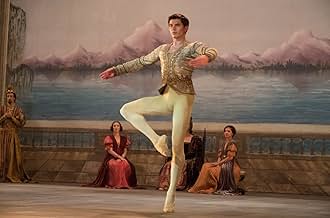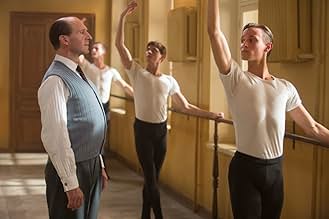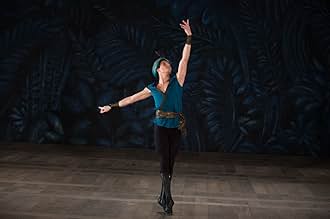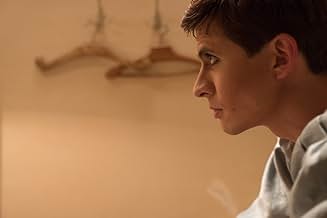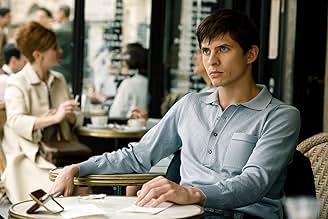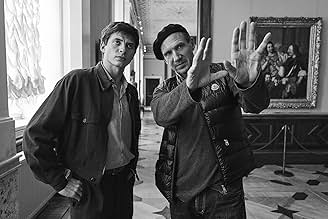IMDb RATING
6.6/10
7.1K
YOUR RATING
The story of Rudolf Nureyev's defection to the West.The story of Rudolf Nureyev's defection to the West.The story of Rudolf Nureyev's defection to the West.
- Awards
- 1 win & 4 nominations
- Director
- Writers
- All cast & crew
- Production, box office & more at IMDbPro
Storyline
Did you know
- TriviaHayden Christensen, who trained extensively in ballet as a child, was first choice to star; however a persistent ankle injury prevented him from being able to perform to the standards demanded by Ralph Fiennes.
- GoofsIn a scene showing a close up of Nureyev's foot performing a tendu, the shoe he is wearing is a white split sole ballet slipper, a shoe that did not exist in the 1960s. Split sole ballet technique shoes have only been on the dance scene since the mid 1990s.
- Quotes
Claire Motte: You are with the company? Did you dance tonight?
Rudolf Nureyev: If I had danced, you would remember.
- ConnectionsFeatured in The White Crow: Ralph Fiennes and Oleg Ivenko in Conversation (2019)
- SoundtracksLa Bayadère 3rd Shade Variation
Composed by Ludwig Minkus
Arranged by Matthias Gohl
Performed by Ilan Eshkeri and The London Metropolitan Orchestra
Featured review
First-time actor Oleg Ivenko gives a strong performance here in the lead role of renowned ballet dancer Rudolf Nureyev. The biopic also has a most solid supporting cast and is directed by the fine actor Ralph Fiennes (who also has a supporting role in the film), and is written by the most talented David Hare, based on the book by Julie Kavanagh.
The biopic covers the early years of Nureyev from his most difficult early life in the Soviet Union, his incredible innate talent for ballet dancing, his complicated and flamboyant personality, love of the arts, and a most fervent desire for freedom.
I felt the heart of the movie was the tension filled final 20 minutes or so of Nureyev's defection to the West at a Paris airport, in 1961.He would be the first Soviet notable to do so during the Cold War.
All in all, although this biopic is deliberately paced and a little too long at over 2 hours in length I felt it was a solid effort all around. To note, Rudolph Nureyev would pass away in 1993 from AIDS, at the age of 54.
The biopic covers the early years of Nureyev from his most difficult early life in the Soviet Union, his incredible innate talent for ballet dancing, his complicated and flamboyant personality, love of the arts, and a most fervent desire for freedom.
I felt the heart of the movie was the tension filled final 20 minutes or so of Nureyev's defection to the West at a Paris airport, in 1961.He would be the first Soviet notable to do so during the Cold War.
All in all, although this biopic is deliberately paced and a little too long at over 2 hours in length I felt it was a solid effort all around. To note, Rudolph Nureyev would pass away in 1993 from AIDS, at the age of 54.
Details
- Release date
- Countries of origin
- Official sites
- Languages
- Also known as
- Beyaz Karga
- Filming locations
- Production companies
- See more company credits at IMDbPro
Box office
- Gross US & Canada
- $1,828,784
- Opening weekend US & Canada
- $78,782
- Apr 28, 2019
- Gross worldwide
- $7,622,595
- Runtime2 hours 7 minutes
- Color
- Aspect ratio
- 1.85 : 1
Contribute to this page
Suggest an edit or add missing content







